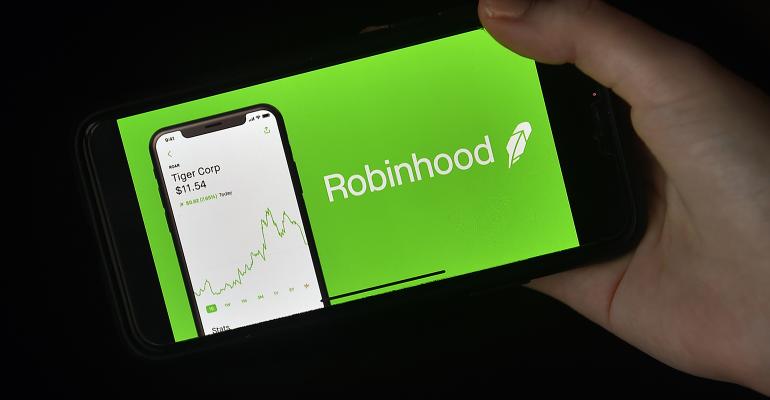Robinhood will pay $7.5 million to settle a years-long scuffle with Massachusetts Commonwealth Secretary William Galvin that it "gamified" its trading platform, encouraging novice investors to make stock trades that in many cases were not financially prudent.
The brokerage app agreed to “overhaul its digital engagement practices,” according to the Secretary’s office.
Robinhood successfully challenged the division’s complaints (and the Bay State’s fiduciary rule), before the state’s highest court overturned that decision in August.
In a statement about the settlement, Galvin said he was happy that the fiduciary rule “remains the law of the land.”
“This rule allows my office to ensure that investors’ interests are being protected in this state, and I hope that other states follow suit,” he said.
The allegations in the consent order do not "reflect Robinhood today," according to Lucas Moskowitz, the firm's deputy general counsel and head of governmental affairs.
"We’ve invested heavily in strengthening how we supervise our technology and system controls, ensuring platform stability, and enhancing cybersecurity policies and practices," he said.
A company spokesperson went further, arguing Robinhood executives "reject the premise that any part of our app, past or present, is 'gamified.'"
"The settlement concerns historical practices related to supervisory controls and procedures, and the order does not find that digital engagement practices in the app themselves violated the regulations or the state’s fiduciary rule, or that they negatively influenced customer behavior," the spokesperson said. "We have since made improvements to those supervisory controls and are focused on continuing to ensure customers have the information and tools they need to make informed investment decisions.”
According to the Dec. 2020 complaint filed by Galvin, Robinhood exposed thousands of investors to “unnecessary trading risks” that didn’t comply with the state’s fiduciary standard, passed in response to what Galvin believed was a paltry federal Regulation Best Interest mandate.
According to the consent order, Robinhood’s tactics led many customers with no investment experience to average at least five trades a day, with some trading far more often.
The consent order detailed what it called Robinhood’s gamification strategies, including using confetti animation, lists of popular stocks, push notifications and offers for free stock rewards, in which Robinhood required customers “mimic the motion of ‘scratching off’ a lottery ticket” to reveal the prize. They also offered clients a $500 credit for touting the app to others.
In 2021, Robinhood volleyed back by suing Galvin, challenging the state’s fiduciary rule. In March 2022, a judge in Massachusetts’ Superior Court ruled in Robinhood's favor, arguing Galvin's rule attempted to supersede federal law, according to Reuters.
While that ruling didn't wholly invalidate the case against Robinhood, it threatened to put a stake through the heart of the state's fiduciary rule, the first-of-its-kind in the nation. Galvin appealed to the Massachusetts Supreme Judicial Court. In August, that court overturned the lower court’s decision.
While Galvin acknowledged Robinhood ended many of its gamification strategies after the initial complaints were filed, the consent order means that Robinhood can no longer use any “celebratory imagery” tied to frequent trading, nor use push notifications for particular lists nor any features “that mimic games of chance.”
The brokerage app will also add disclosures to any lists it creates and bring on a third-party compliance consultant to ensure that its other engagement practices are toeing the line.
The consent order also details the ramifications of a Nov. 2021 data breach impacting about 117,000 Massachusetts Robinhood customers. Galvin claimed an unauthorized third party accessed customer information via a voice phishing scam by convincing a Robinhood agent to download software on a company-issued laptop (the installation wasn’t blocked).
This agent wasn’t able to reach anyone at Robinhood in order to report the breach for almost an hour; according to the consent order, they only met silence, automated messages and in one instance, an internal bot named “Halp.”
Galvin said the lack of safeguards as well as the inability to timely report a data breach was “unacceptable.” The brokerage app acquiesced to a third-party review of its cybersecurity policies and procedures as a part of the settlement.




